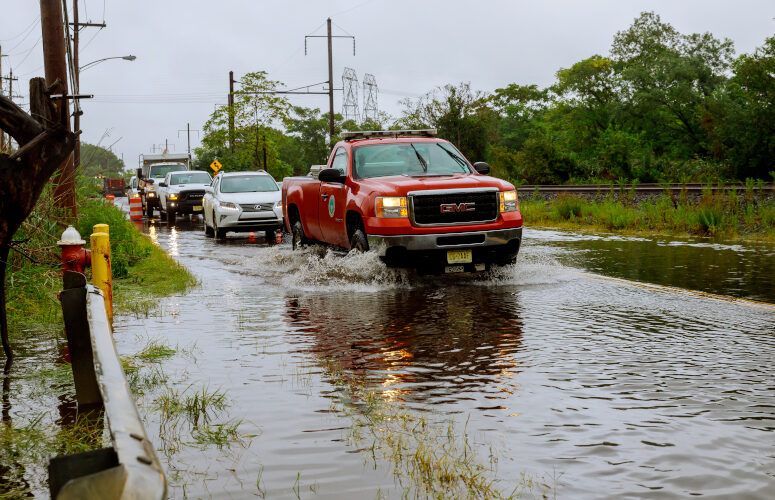
9/11 Poll: Domestic Terror Threat is High
Domestic terrorism seen as bigger threat today
On Sep 7, 2021Twenty years after the region was shaken by the horrific events of September 11th, New Jersey voters see domestic terrorism as a greater threat than foreign terrorism by a more than 4 to 1 margin. The Monmouth University Poll finds more voters see the country as a whole – and New York City specifically – as being more safe rather than less safe from terrorism than it was in 2001, but the gap has narrowed over the past decade. Nearly 1 in 5 Garden State voters still think about that fateful day on a regular basis.
Just under 4 in 10 New Jersey voters (38%) feel the country is more safe from terrorism now than it was before the 9/11 attacks, while 28% say it is less safe. Ten years ago, a slightly larger number of voters (45%) felt the country was more safe and a slightly smaller number (20%) said it was less safe. The past decade’s decline in feeling the country is more safe has been greater among Republicans (from 50% to 35%) than among Democrats (from 49% to 43%) or independents (from 39% to 36%).
Overall, though, Garden State voters are much more likely to see domestic terror groups (67%) as a bigger threat to the country than foreign terror groups (16%). Majorities of Democrats (80%), independents (66%), and Republicans (51%) see domestic terrorism as a relatively greater threat.
“We don’t have trend numbers on this particular question, but it is likely that events of the last few years, including the attack on the U.S. Capitol in January, have focused terrorism concerns on threats emerging from within our borders,” said Patrick Murray, director of the independent Monmouth University Polling Institute.
The poll was conducted just before the U.S. withdrawal from Afghanistan and it is not clear whether this development has a significant impact on public opinion about these questions.
The poll also finds that nearly 1 in 5 New Jersey voters (18%) still think about what happened on September 11th, 2001 on a regular basis. Just over 1 in 4 (27%) say they rarely or never think about the attacks. Ten years ago, 31% of voters regularly thought about 9/11 and 23% did so rarely or never. Currently, 56% think about it from time to time (46% in 2011). The number who think about the attacks on a regular basis has declined among all demographic groups and regions of the state.
“The memory may be fading, but not entirely. The 9/11 attacks left an indelible imprint on the Garden State that will never entirely disappear,” said Murray.
One in five Garden State voters plan to do something to mark the 20th anniversary of the attacks, including 7% who will attend a public ceremony and 12% who plan a private observance. Ten years ago, 13% planned to attend a public ceremony and 13% planned a private observance.
A persistent policy issue related to 9/11 revolves around rescuers who have since developed health issues. Only 14% of New Jersey voters say that the government has done enough for these responders compared to 49% who say the government has not done enough to meet their health care needs. Another 37% have no opinion on this. Ten years ago, a much larger two-thirds of voters (68%) said the government was not doing enough. This shift has been offset more by an increase in the number of voters who have no opinion (23% in 2011) than by an increase in those who think the government has done enough (9% in 2011).
The poll findings about the relative safety of New York City twenty years after 9/11 are similar to opinion about the country as a whole. Specifically, 37% of New Jersey voters say the city is more safe from terrorism now than before 9/11 (versus 48% in 2011) and 27% say it is less safe (14% in 2011).
The Monmouth University Poll was conducted by telephone from August 11 to 16, 2021 with 810 New Jersey registered voters. The question results in this release have a margin of error of +/- 3.5 percentage points. The poll was conducted by the Monmouth University Polling Institute in West Long Branch.
To access more business news, visit NJB News Now.
Related Articles:





